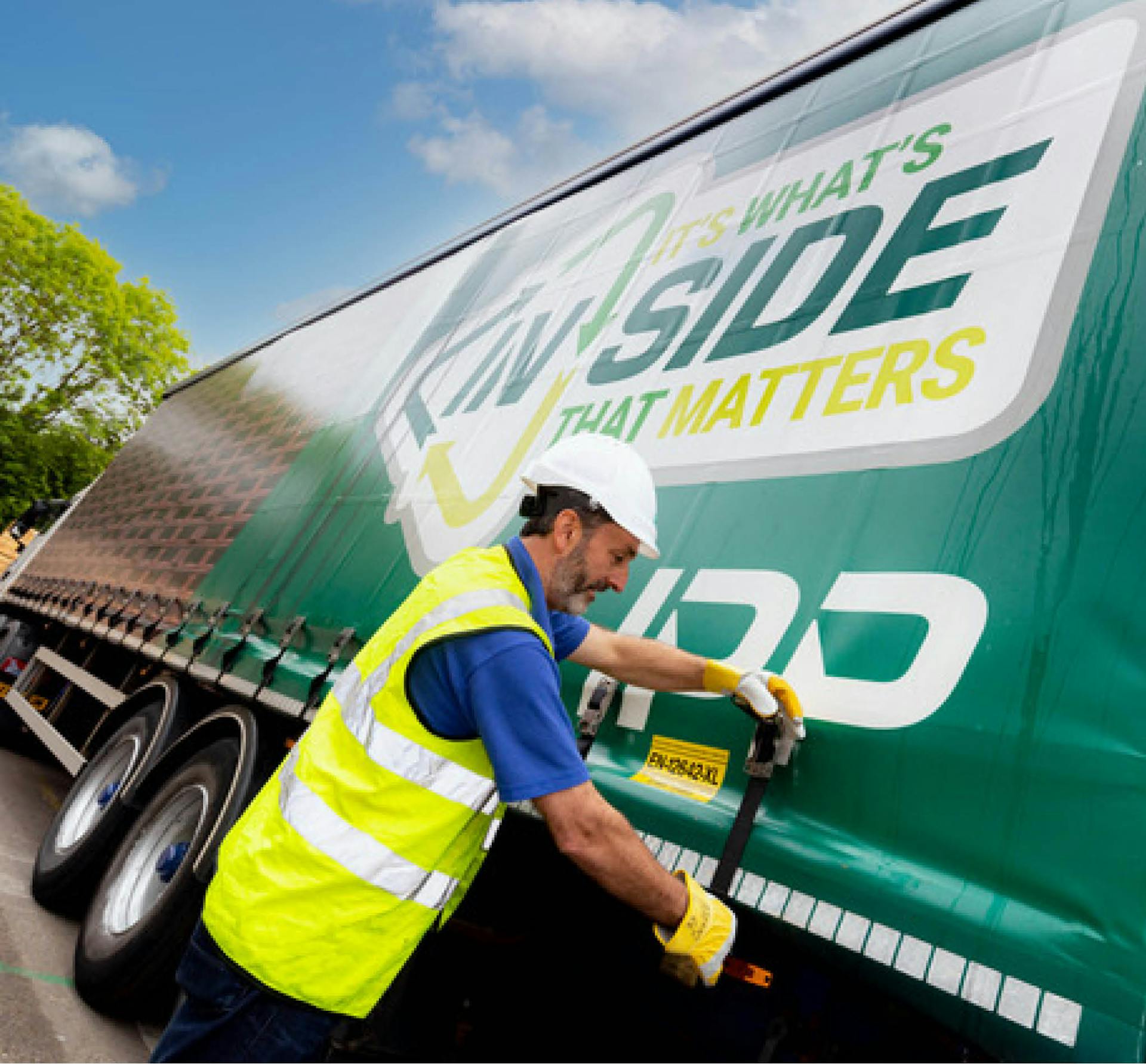Evolution of pallet pooling
For decades, the logistics industry struggled with inefficient pallet management. Manufacturers and retailers frequently faced imbalances: pallets would accumulate at distribution centers, creating logistical bottlenecks and unnecessary transportation costs. Recognizing the need for a smarter system, IPP introduced its pooling model – a transformative approach where pallets circulate efficiently across a shared network.
“At distribution centers, pallets often end up stranded, waiting to be transported back to their origin,” explains Mark Hulland. “Our extensive customer network eliminates this inefficiency. Nearby customers can reuse those pallets, reducing transportation costs and ensuring timely availability.”
IPP also operates strategically located depots where pallets are inspected and temporarily stored. This logistical innovation not only enhances efficiency but also minimizes waste and emissions. “Pooling isn’t just about moving pallets,” adds Ilona van der Waals. “It’s about rethinking how resources are shared and reused, creating a more sustainable logistics ecosystem.”
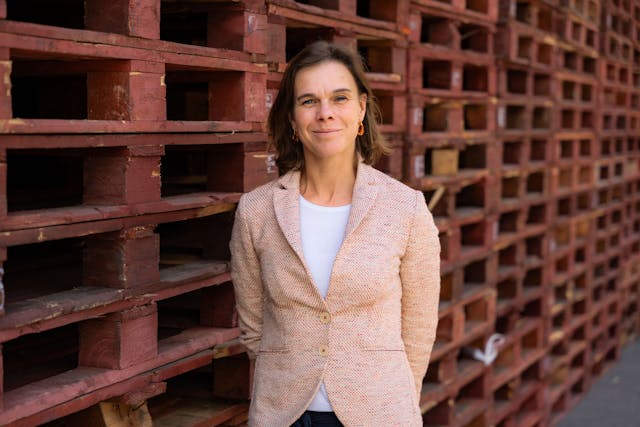
Ilona van der Waals, IPP
"Pooling isn’t just about moving pallets. It’s about rethinking how resources are shared and reused, creating a more sustainable logistics ecosystem."
Collaboration with ORTEC: a strategic advantage
One of IPP’s collaborations is with ORTEC. Together, they have developed tools that transform pallet management by introducing visualizations, predictive analytics, and scenario modeling, enabling smarter decision-making across IPP’s operations.
“ORTEC’s expertise has been valuable,” says Hulland. “They helped us create tools that let us view the expected demands for all types of pallets per area for the next 12 or 18 months, help us detect bottlenecks, and optimize transportation routes. This has significantly enhanced our operational efficiency.”
The collaboration began with the Forecasting & Planning project which aimed to overhaul IPP’s operational tools. While the initial implementation faced challenges – such as poor master data and misaligned algorithms – a retrospective analysis refined the approach. “We’ve since transitioned to a hypercare principle,” Hulland explains. “This enables us to address issues proactively and to continuously improve our systems. This ensures we stay ahead of customer needs while maintaining operational balance.”
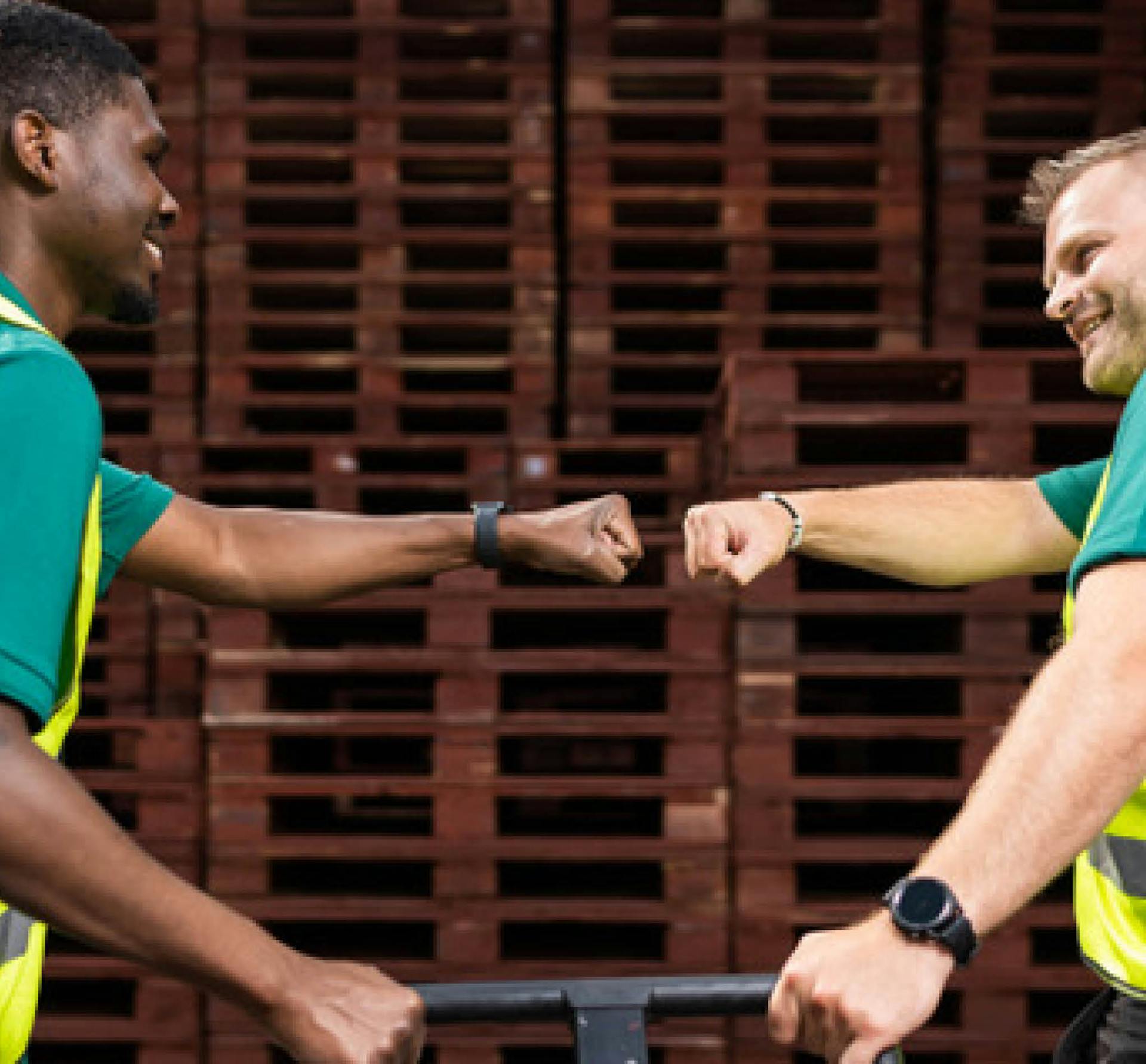
Technology for smarter logistics
In 2024 IPP launched Faber LABS, a brand-new division to accelerate its digital transformation. Hulland explains: “LABS will drive innovation, utilize our knowledge efficiently, and share expertise across divisions. This will further establish a strong digital mindset and culture which ensures that we continuously improve our quality and accelerate our performance.
Our predictive models step up the game. They enable us to anticipate future demand and proactively allocate resources, reducing waste and ensuring pallets are always available where they’re needed.”
One of the most impactful innovations has been the integration of tracking systems. This provides deeper insights into pallet movements, helping identify inefficiencies and improve decision-making.
“Data is the backbone of our operations. From customer insights to operational analytics, we’re leveraging every piece of information to deliver smarter, more sustainable solutions.”
Sustainability: a core value at IPP
As global industries shift towards sustainability, IPP is leading the charge with initiatives that reduce environmental impact and promote ethical business practices. The company’s pooling model inherently minimizes waste by reducing the need for new pallets and optimizing transportation.
“Sustainability is embedded in everything we do,” Van der Waals says. “We’ve introduced durable plastic pallets that extend usability and work exclusively with suppliers who meet stringent sustainability certifications, such as PEFC and FSC.”
Beyond product innovation, IPP focuses on reducing emissions. By streamlining routes and reusing pallets within localized networks, the company has significantly cut CO₂ emissions. “Transportation and pallet production account for the majority of our carbon footprint,” Hulland explains. “Optimizing these processes is not just a business priority—it’s a moral obligation.”
Van der Waals highlights another key aspect: diversity and inclusion. “Sustainability isn’t just environmental. It’s about fostering an inclusive, ethical business environment that reflects our commitment to social responsibility.”
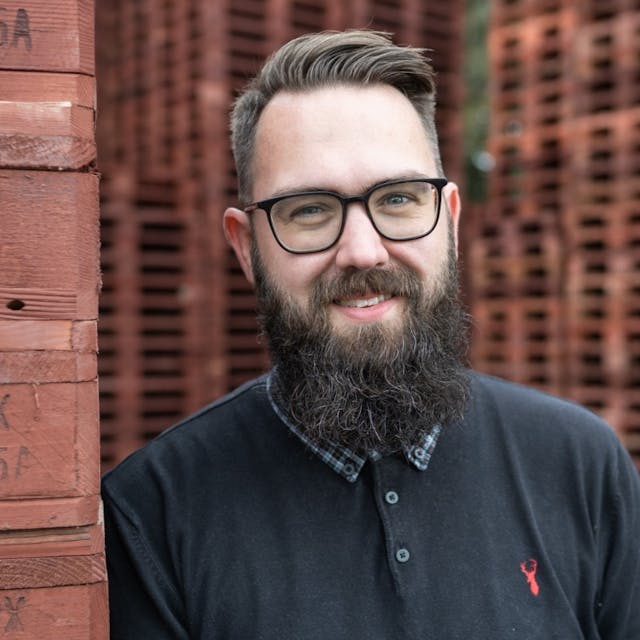
Mark Hulland, IPP
"Transportation and pallet production account for the majority of our carbon footprint. Optimizing these processes is not just a business priority—it’s a moral obligation."
Tackling challenges in pallet flow management
Maintaining balance in pallet flows is a constant challenge, especially in regions with supply-demand mismatches. The UK market, for example, experiences significant imbalances due to higher pallet imports than exports.
“To address this, we use data analytics to identify surplus pallets in low-demand areas and reallocate them to regions with higher demand,” Hulland says. “Our collaboration with ORTEC enables us to do this efficiently, ensuring an even distribution of resources.”
Another challenge is incomplete or delayed data. IPP relies on data integration with its customers to enable real-time access to pallet movement information. This has drastically improved planning accuracy and responsiveness to fluctuations in demand.
Best practices
Collaboration is key to IPP’s success. The company has established specialized communities across its regions, bringing together experts in asset control, quality management, and logistics to share insights and develop best practices.
“Our monthly alignment sessions ensure that all regions are working towards the same priorities,” says Ilona. “For major projects, our program management board oversees implementation, ensuring consistency and scalability.”
These collaborative efforts extend to IPP’s partnership with ORTEC. Regular retrospectives allow both teams to evaluate progress, refine tools, and set goals for future advancements. “This partnership isn’t just about solving today’s challenges,” Hulland notes. “It’s about preparing for the logistics demands of tomorrow.”
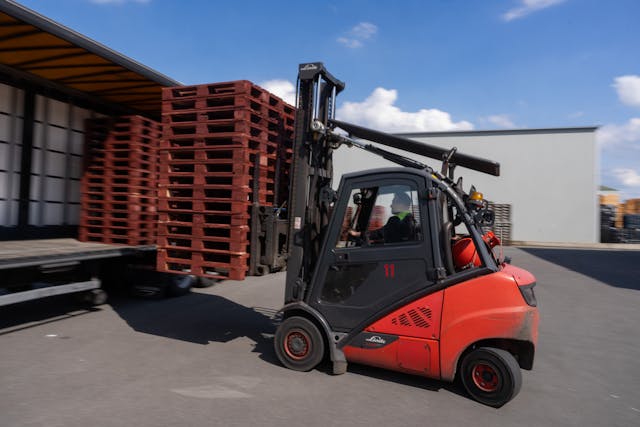
"By integrating forecasting and planning tools, we’re creating a system that provides real-time updates and actionable insights, enabling us to respond quickly to changing market conditions."
The future of logistics
As IPP looks to the future, digital transformation and sustainability remain central to its strategy. The company envisions becoming a fully digital pallet organization, leveraging data to deliver smarter, more efficient solutions.
“Digital transformation isn’t just a buzzword – it’s a necessity,” Hulland says. “By integrating forecasting and planning tools, we want to create a system that could provide real-time updates and actionable insights, enabling us to respond quickly to changing market conditions.”
Van der Waals sees sustainability as a defining factor for the industry: “Soon, sustainability won’t just be a competitive advantage – it will be a baseline expectation. Companies that lead in this space will differentiate themselves through innovation and exceptional customer service. We’re not just optimizing pallet pooling – we’re setting a new standard for what logistics can achieve. By staying ahead of trends and leading with purpose, we’re shaping the future of a more sustainable, efficient industry.”
The right tools to align supply and demand
“In the past, pallets were often discarded inefficiently, creating imbalances in supply and demand,” says Stijn Duijzer, consultant at ORTEC. “IPP addresses this by leveraging its extensive customer network to ensure pallet flows are optimized. This approach not only resolves logistical challenges but also helps customers focus on their core activities, all while contributing to a more sustainable system.”

Tools for streamlined operations
“To make this optimization possible, we’ve developed two complementary tools,” Duijzer explains. “One operates on a tactical level, focusing on long-term planning, while the other addresses short-term operational needs. The tactical tool looks up to 18 months ahead, forecasting how many pallets will be needed at specific locations and where they will become available. With these forecasts, IPP can make strategic decisions, such as producing more pallets, redistributing them across regions, or increasing safety stock at depots.”
“The operational tool works on a much shorter timeframe, typically one to three days in advance. It ensures pallets are moved from location A to location B to meet immediate demand. Together, these tools allow IPP to align supply and demand efficiently, reducing costs, transportation, and emissions.”
Challenges in implementation
“Rolling out these tools wasn’t without challenges,” Duijzer acknowledges. “IPP operates in multiple countries, including Germany, the Benelux, France, and Spain, each with its own operational practices. There wasn’t a single system that could be seamlessly applied across all regions, and differences in customer agreements and processes added to the complexity. However, we’ve seen significant improvements in planning capabilities and operational alignment as a result.”
Improvements in the tactical tool
“One of the biggest successes has been the enhanced use of the tactical tool,” Duijzer continues. “Previously, it wasn’t used to its full potential, but now it plays a central role in IPP’s planning process. By combining customer data with historical trends from the past three years, we can create accurate forecasts. This helps simulate scenarios and supports better strategic decisions.”
“The tool allows us to predict where pallets will be needed and where they will become available in the next 24 months. This proactive planning not only helps resolve supply chain bottlenecks but also aligns with IPP’s sustainability goals by reducing unnecessary transportation and CO₂ emissions.”
IPP, part of the Faber Group, draws on over 130 years of expertise in load carrier services as a family-owned business with a strong focus on sustainability. The company operates a circular logistics system, providing reusable pallets and boxes to reduce waste and improve efficiency within supply chains.
With a central role in fast-paced and demanding supply chains, IPP collaborates with well-known brands, producers, and retailers to ensure the right products are delivered in the right quantity and quality, precisely where and when needed. This approach supports operational optimization while aligning with broader environmental and economic goals, reinforcing IPP’s commitment to a sustainable and efficient future.
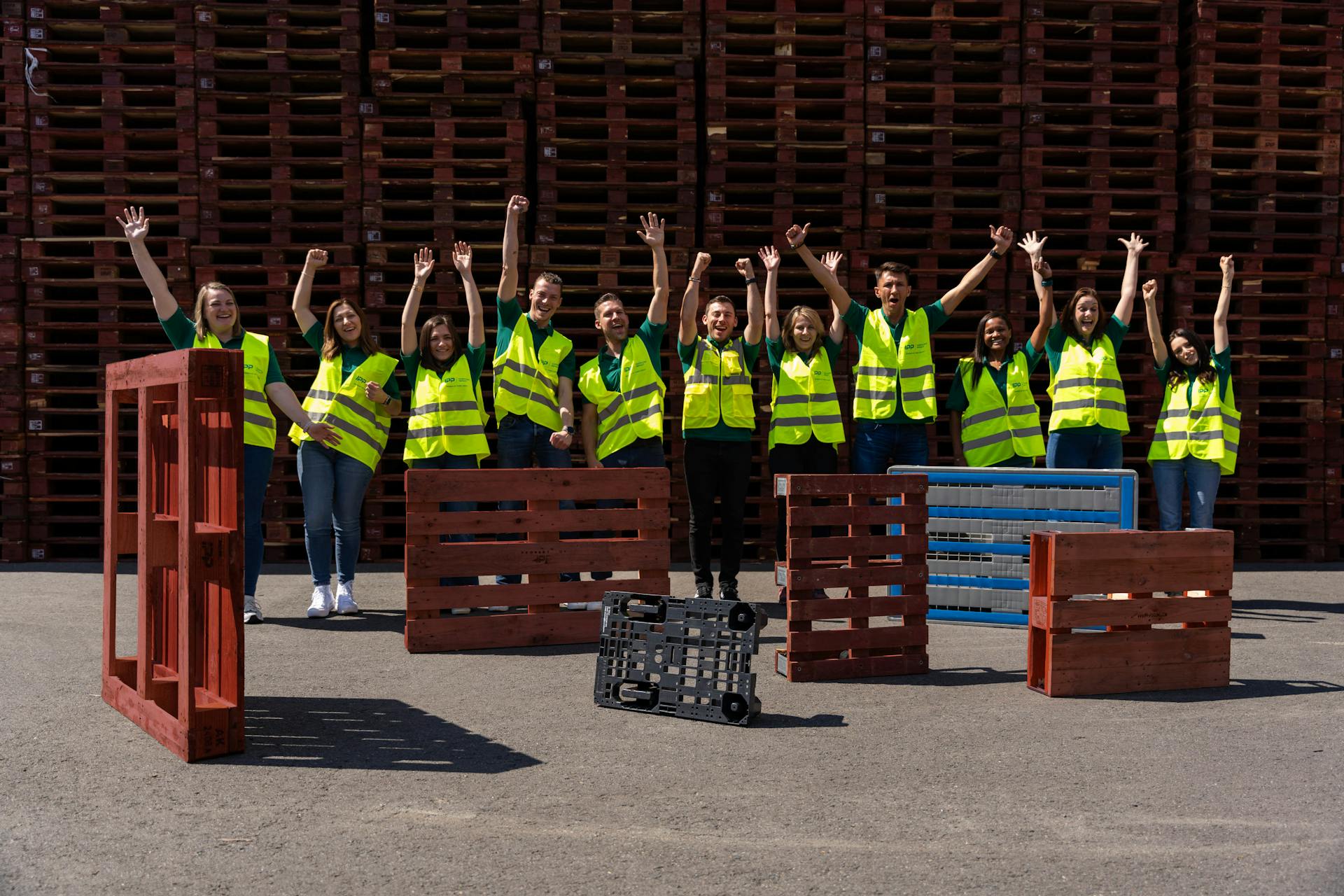
Mark Hulland has been working in logistics since 2008, beginning his career in the UK. Over the years, he has taken on various operational roles, gaining a deep understanding of the challenges related to efficiency and innovation in the sector. In 2017, he moved to the Netherlands to take on projects with a broader international scope. At IPP, Hulland focuses on aligning data-driven solutions with customer needs and optimizing pallet flows across Europe.
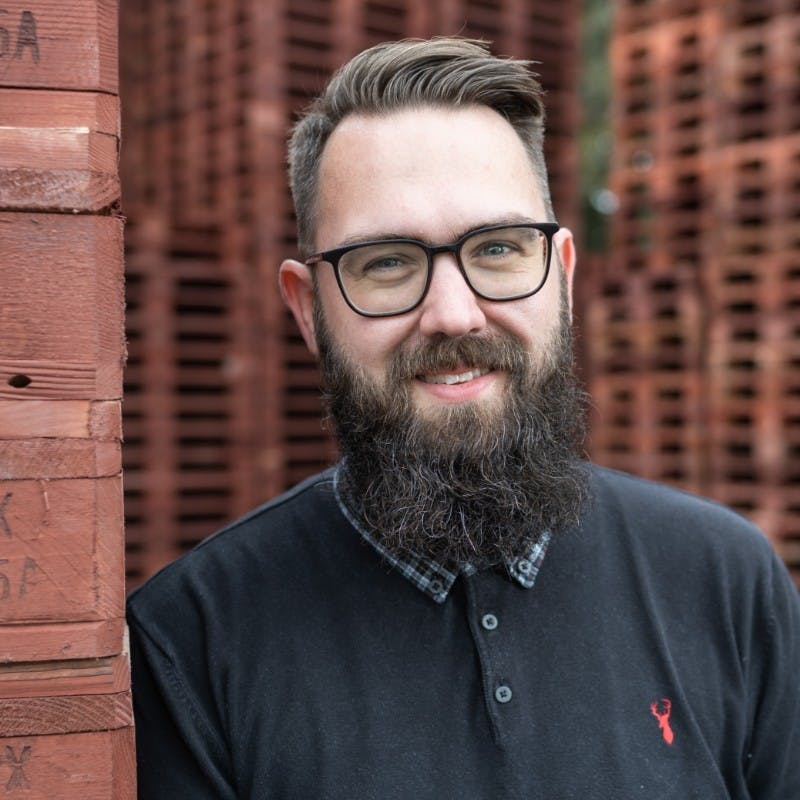
Ilona van der Waals specializes in sustainability and communication at IPP. She oversees the company’s sustainability initiatives, ensuring they are impactful and clearly communicated to internal teams and external stakeholders. Her work focuses on aligning environmental goals with operational practices while effectively conveying the value of these efforts to customers.
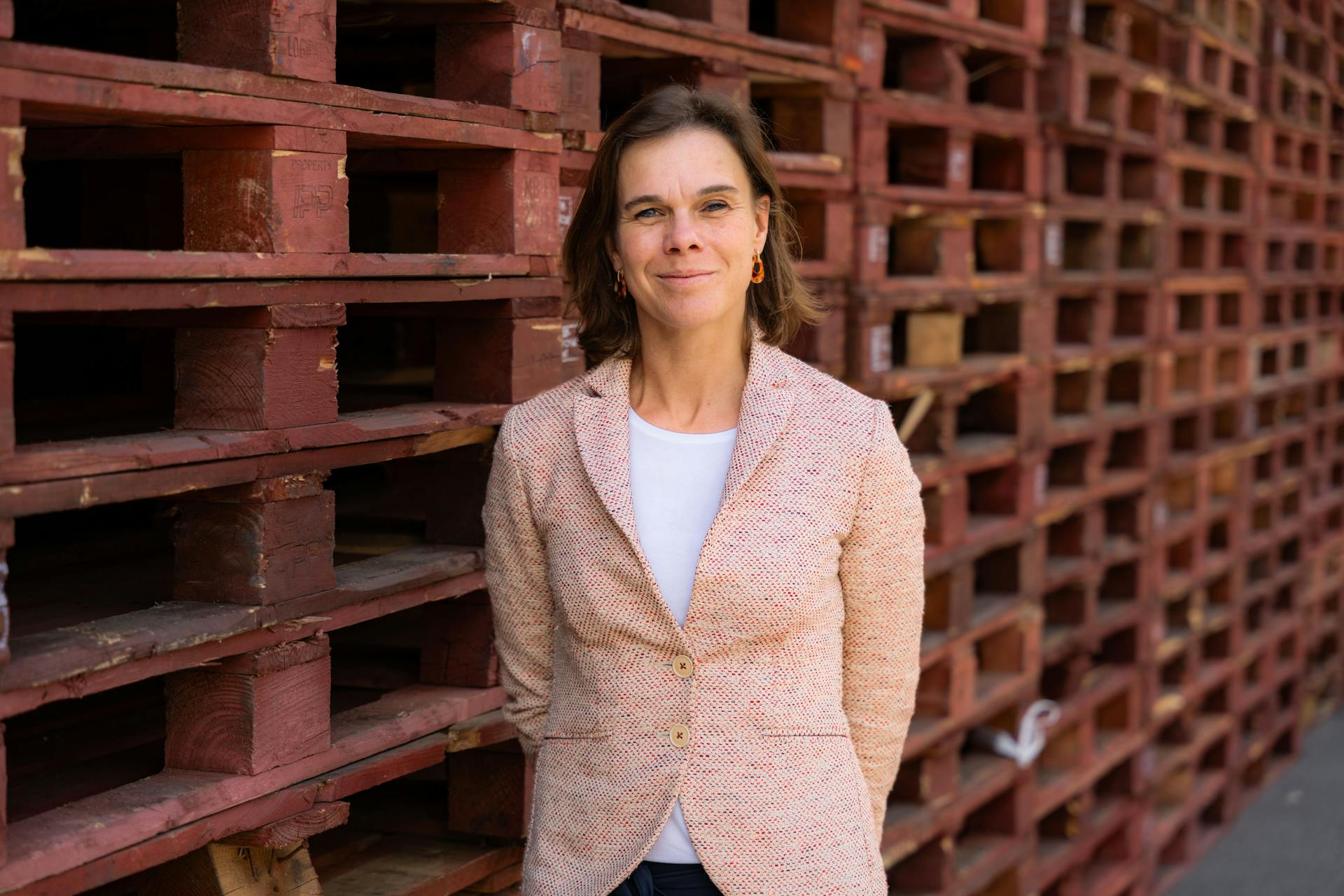
Get in touch
We would like to help you and show you the benefits for your organization. Our consultants are very happy to help.


